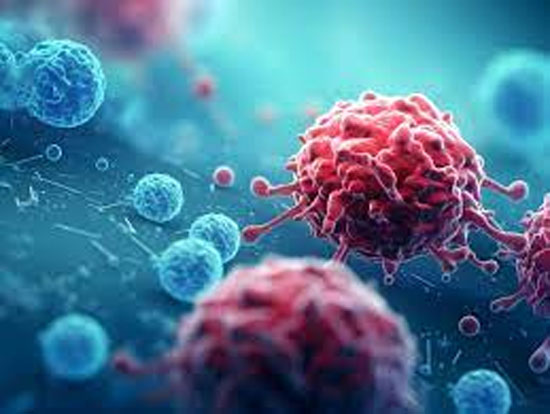Daijiworld Media Network - New Delhi
New Delhi, Aug 15: A newly engineered cancer immunotherapy drug has delivered remarkable results in early clinical trials, shrinking or completely eliminating tumours in half of the participants — without the severe side effects that have plagued similar treatments for decades.
The drug, called 2141-V11, is an enhanced CD40 agonist antibody developed by researchers at Rockefeller University in collaboration with the Memorial Sloan Kettering Cancer Center. The findings, published in Cancer Cell, suggest a potential breakthrough in treating aggressive cancers like melanoma, renal cell carcinoma, and certain breast cancers.

What Makes 2141-V11 Different?
CD40 agonist antibodies are known to activate the immune system against cancer, but they’ve historically caused serious side effects — including inflammatory reactions, liver toxicity, and dangerously low platelet counts — even at low doses.
To overcome this, scientists in 2018 re-engineered the CD40 antibody to improve safety and potency. Their version, 2141-V11, is:
• Modified to bind more tightly to the CD40 receptor,
• Designed to enhance crosslinking with immune cell receptors,
• Delivered directly into tumours, rather than via intravenous infusion.
Phase-1 Trial Results
In the Phase I trial, 12 patients received intratumoral injections of 2141-V11. The outcomes were highly promising:
• 6 out of 12 patients experienced tumour shrinkage,
• 2 patients — one with melanoma and one with breast cancer — achieved complete remission,
• No serious adverse effects were reported.
“Seeing these significant shrinkages and even complete remission in such a small subset of patients is quite remarkable,” said Dr. Juan Osorio, lead author and oncologist at Memorial Sloan Kettering.
Interestingly, the immune response was not confined to the injected tumours. Other tumours elsewhere in the body also shrank or disappeared — a phenomenon known as a systemic immune response.
“This kind of response — where a local injection leads to widespread tumour destruction — is extremely rare,” said Jeffrey V. Ravetch, the senior author from Rockefeller.
How It Works
CD40 is a receptor found on immune cells. When activated, it sends a powerful signal that prompts tumour-specific T cells to attack cancer. The improved 2141-V11 antibody enhances this effect while avoiding the toxic systemic inflammation triggered by earlier versions.
What’s Next?
Though still in its early stages, these findings offer new hope for patients with cancers that are typically resistant to treatment or prone to recurrence.
The team now plans to expand the trials to include more participants and different cancer types, with the goal of validating the results and moving toward larger clinical phases.
“It’s a promising step forward,” researchers said. “If these outcomes hold in larger trials, this could represent a new generation of safer, more effective immunotherapies.”
Bottom line: The 2141-V11 trial could mark a turning point in cancer immunotherapy, offering high impact with low toxicity — a long-sought goal in the fight against aggressive cancers.